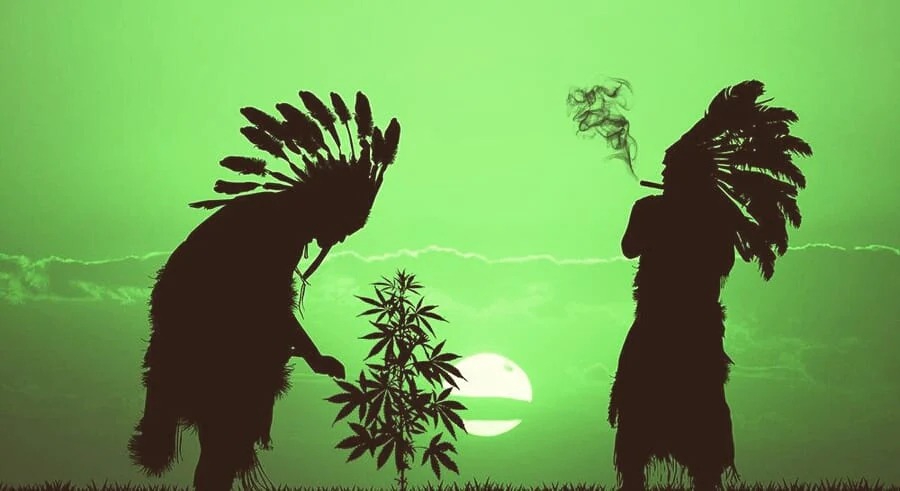
Senate Report on Native Cannabis – Cannabis | weed | marijuana
A report by Canada’s Senate Committee on Indigenous Cannabis offers some sensible solutions.
The report suggests that the federal government should reduce the administrative burden on cannabis to include more First Nations. Specifically, the Senate report proposes giving First Nations the power to regulate their own production and sale of cannabis.
This proposal is one of many in the Senate report entitled “Looking Inside From the Outside: The Implementation of the Cannabis Act and Its Impact on Indigenous Peoples.”
According to the Senate report
For First Nations, jurisdiction is a complex and contentious issue involving multiple governmental arrangements, making it unclear where the legislative power lies… Regulating the law [cannabis] The activity was left to the provinces and territories. The problem for First Nations, however, is that the Government of Canada has chosen not to exercise its powers over First Nations and their land. Instead, the federal government opted to let the provinces and territories handle the sale and distribution of First Nations cannabis.
Conclusion: “First Nations have missed significant economic opportunities that are no longer available now that the cannabis market is largely saturated.”
Senate Report on Native Cannabis: 13 Recommendations
The Senate Report on Native Cannabis contains thirteen recommendations to the federal government. Some of them are better than others.
Regarding the excise tax, which negatively affects everyone — not just First Nations — the Senare report proposes a “consumption tax sharing framework.” The correct solution is to abolish the “sin tax” altogether.
Most of the recommendations are about tackling the problem with money. Including the establishment of a brand new “Indigenous”-led public health bureaucracy.
Notable recommendations include #2, #3, #10, and #11.
Recommendation #2 is:
For the Secretary of Health to introduce legislation in Parliament amending the Cannabis Act to allow First Nations to regulate the possession, sale and distribution of cannabis on their lands.
We 100% support new legislation that would decentralize the cannabis industry to local indigenous communities. The question is: why would Canada’s cannabis industry be separated?
As Pierre Elliot Trudeau once said, Canadians “believe in the equality of men without distinction of sex, language, race, religious origin, color or creed.”
Of course, this belief is now under attack by today’s anti-enlightenment “progressives.” Trying to build a color-blind society (the original goal of Señor Trudeau’s multiculturalism) is now considered racist.
We are no longer individuals judged on our personal beliefs and actions. We are members of an identity group judged by the collective actions of our ancestors.
Regardless, the recommendation of the Senate report is good.
Communities fed up with getting involved at the federal and provincial levels could join First Nations politically. After all, every public gathering begins with the belief that Canadians live on unceded territory.
You can’t have your cake and eat it at the same time. Sooner or later the consequences of this ideology will bear fruit.
Medicinal cannabis for some, but not for others
The Senate report focused on Native American involvement in the cannabis industry. So it’s not entirely fair to say, “But what about non-Indigenous peoples?” It was outside their mandate.
But dividing people along ethnic and cultural lines is a common theme in Justin Trudeau’s “post-national” Canada.
Challenging certain orthodoxies is “extreme right”. Peacefully protesting attacks on civil liberties makes you a “marginal minority” who “don’t believe in science.” Basically, any criticism of Trudeau and the progressive cult makes you a racist and misogynist.
Therefore, according to this ideology, it is morally permissible to eliminate medicinal cannabis for Canadians. But for Indigenous Canadians? Well, the Senate report recommends comprehensive medical care.
Recommendations 10 and 11 propose that Indigenous Services Canada cover the cost of medicinal cannabis. She also wants the federal government to work with licensed producers to ensure that Indigenous Canadians have medical care.
Meanwhile, the federal government has capped medical cannabis reimbursements for our military veterans.
Also, the medical program will be phased out for all Canadians. Including trying to subvert and destroy social cannabis clubs that existed before legalization and offer far saner access than the legal regime.
We agree with the Senate report recommending a broader medicinal cannabis program. As well as the demand to decentralize production and sales to the municipalities.
But why stop at Indigenous Canadians? Why not give everyone the same opportunities and freedoms? When was equal opportunity replaced by equal outcomes?
And how is that fairer?

Post a comment: